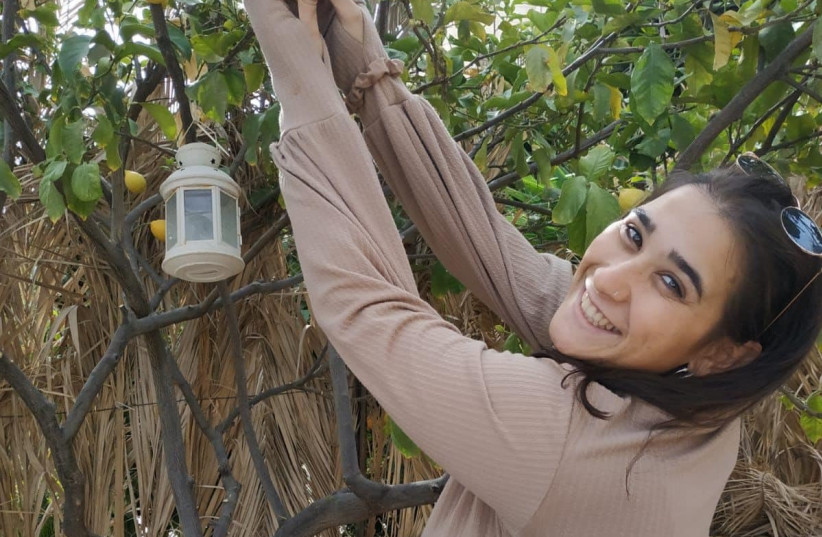The Reality Outside vs. the Reality Inside
Last week’s headlines featured a violent attack against a synagogue in LA, with strong condemnations issued by the mayor, the governor, and even President Biden.
Gidon Katz, CEO of IMP (International Marketing & Promotion), provided me with a different perspective on the story. Katz, together with his partner Emanuel Vatari, organizes periodic real estate fairs in the Diaspora for people interested in making Aliyah. Since Simchat Torah, the demand for these fairs has peaked, with recent events occurring in New Jersey, Flatbush, the Five Towns, Montreal, Toronto, and last week, in Los Angeles.
Without minimizing the severity of the attack, Katz believes that it is secondary to the main story: the event itself. Katz pointed out that we need to pay attention to the focus of these angry protests. “While a violent crowd was screaming outside, more than 350 Jews were gathered inside the synagogue. Young people, adults and heads of families flocked here, seeking to purchase homes throughout Israel, thereby reinforcing what was said in last week’s parashah: ’The Land is very, very good.’ Through their actions, they are repairing the sin of the Spies. Thousands of years after leaving Egypt, they are now choosing to leave the US and to make Aliyah.”
Many participants braved the riots to reach the event venue, facing curses and actual physical assaults by the protesters, while others were able to get in through the back door. The Hamas demonstrators were very clear about their intent, shouting: “From the River to the Sea,” in other words, that Jews have no right to live in Israel.
“What happened outside the synagogue is precisely why so many people are making plans to move to Israel,” said Katz. “I witnessed how this alarming rise in antisemitism has yielded an unintentional, positive result, strengthening our presence in the Land of Israel.”
The Weekly Parashah: Korach
In this week’s Torah portion, Korach, we read about the contentious dispute led by Korach against Moshe Rabeinu and Aharon HaKohen. Driven by intense jealousy, Korach coveted their esteemed positions. The dramatic punishment that Korach and his followers received – the earth swallowing them whole – serves as a powerful symbol: envy leads nowhere but to self-destructions, consuming a person entirely.
Our Sages encapsulated their fate with a profound statement: “Envy, lust, and the pursuit of honor remove a person from this world.” Envy is not merely a negative trait; it is catastrophic. It is not something one can live with.
So, what is the remedy?
The Sages say, “Who is rich? He who is content with his lot.” True wealth lies in gratitude for what one has, recognizing and appreciating the good in one’s life without succumbing to jealousy of others. This is a lifelong endeavor, especially in today’s era of social media where ostentation is glorified.
If envy removes us from the world, surely an attitude of contentment and gratitude infuses us with greater vitality. May we embrace this important lesson and live richer, more fulfilling lives.
A Message of Optimism from NY
During my recent trip to New York, I met TV host, NBA reporter and Israel activist Emily Austin. When I asked for her takeaway after 9 months of hasbara, PR on behalf of Israel that she sent to her 2.3 million followers on social media, she remarked, “I see a lot of unity, a lot of reunited Jews. [Before October 7] we were all in our separate worlds. This was a reminder that ultimately, we need to stick together, stay together, love one another. They say “B’yachad nenatzeiach,” (together we will win), and it’s true.”
In Praise of the Land and Its People
Noy Zafrani, the fiancée of Yuval Revia, was murdered on Simchat Torah together with him and his brother, Noam at the entrance to Kibbutz Nir Oz. If you haven’t heard of these young people among the many victims, it’s because of the enormity of the evil that was perpetrated against us.

Noy’s sister, Maor Shaked, describes her sister: “Noy felt very connected to the Land of Israel. She grew up in the rural community of Nokdim and loved to travel around the country. She knew all the songs of the Land of Israel by heart, and in honor of her Bat Mitzvah, our grandmother wrote out all the lyrics and arranged them in a special binder for her. Every Shabbat, Noy and I would sing love songs to our beautiful country with great joy and exuberance.”
In last week’s parashah, Shelach, we read about the spies who came back with a negative report about the Land of Israel. Since then, our nation has been haunted by this sin and we continue to grapple how to view our reality – with faith and optimism, or with despair and hopelessness.
Maor related that last year, during the week when we read the story of the spies, she attended a special evening organized by the Buzaglo family, where people heard speeches and songs in praise of the Land. “I enjoyed it so much that I decided to hold a similar celebration the next year, in the hope that this custom would catch on in other places as well.”
This year, before the week of Shelach, Maor related that she was ambivalent, given the tragedy that occurred. “In the end, I decided to go ahead with my plans. I didn’t want to repeat the mistake of the ten spies! I don’t view this country merely through the prism of politics and the latest news; our country is very good.
“This year, our land is saturated with the blood of my sister and of so many of our precious people, but that only strengthened our resolve to protect and love our land, and to believe that the chaos we are witnessing now will come to an end.”
Translated by Yehoshua Siskin and Janine Muller Sherr
Want to read more by Sivan Rahav Meir? Visit sivanrahavmeir.com
